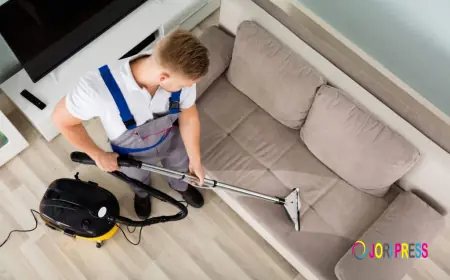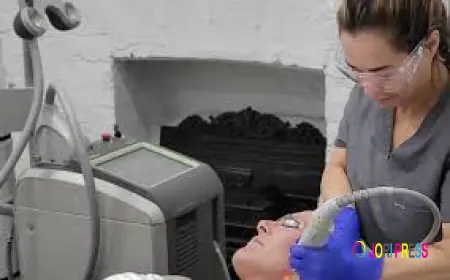Understanding the Essential Role of Bonney Forceps in Modern Surgery
Surgical precision demands the right instruments, and bonney forceps stand among the most trusted tools in operating theaters worldwide. These specialized surgical forceps have earned their reputation through decades of reliable performance in delicate procedures where accuracy matters most.
For medical professionals seeking superior quality instruments, understanding the capabilities and applications of these forceps becomes essential. Whether you're performing gynecological procedures or other specialized surgical interventions, the bonney forceps can make the difference between good and exceptional outcomes.

What Are Bonney Forceps and Why Do Surgeons Trust Them?
Bonney forceps represent a specific type of surgical forceps designed with curved jaws and serrated tips that provide exceptional grip and control during procedures. Named after their inventor, these instruments feature a unique design that allows surgeons to grasp tissue firmly without causing unnecessary trauma.
The distinctive characteristics of these forceps include their robust construction, ergonomic handles, and precision-engineered tips. Unlike standard forceps, they offer enhanced grip strength while maintaining the delicate touch required for sensitive surgical work. This balance between strength and precision explains why surgical teams rely on them for critical procedures.
Medical professionals appreciate these instruments for their versatility and reliability. The curved design allows for better visibility during procedures, while the serrated tips ensure secure tissue handling even in challenging surgical environments.
Primary Applications in Surgical Practice
Gynecological Procedures
In gynecological surgery, bonney forceps excel at grasping and manipulating uterine tissue during various procedures. Surgeons frequently use them during hysterectomies, where precise tissue handling is crucial for patient safety and optimal outcomes.
The forceps prove particularly valuable when working with fibrous or dense tissue that requires firm but controlled manipulation. Their design allows surgeons to maintain steady pressure without compromising tissue integrity, reducing the risk of complications during surgery.
General Surgical Applications
Beyond gynecological use, these specialized forceps find applications in general surgery where strong, reliable tissue grasping is required. Surgeons use them during procedures involving thick fascial layers, muscle tissue, and other structures that demand secure handling.
The versatility of these instruments makes them valuable additions to surgical instrument sets across multiple specialties. Their robust construction ensures they can withstand the demands of various surgical environments while maintaining their precision capabilities.
Design Features That Set Bonney Forceps Apart
Ergonomic Construction
The handles of quality bonney forceps feature ergonomic designs that reduce hand fatigue during lengthy procedures. This thoughtful engineering helps surgeons maintain steady control throughout complex operations, contributing to better surgical outcomes.
Premium manufacturers focus on creating handles that provide secure grip while minimizing strain on the surgeon's hand and wrist. This attention to ergonomic detail reflects the understanding that surgeon comfort directly impacts patient care quality.
Precision Engineering
The jaw alignment and closing mechanism of these forceps require precise manufacturing standards. Quality instruments feature perfectly aligned jaws that close uniformly, ensuring consistent tissue handling across the entire gripping surface.
Manufacturing tolerances for surgical forceps must meet exacting standards to ensure reliable performance. The spring mechanism, joint construction, and surface finishing all contribute to the instrument's overall effectiveness and longevity.
GreyMedical's Commitment to Surgical Excellence
GreyMedical® stands as a privately owned medical technology company dedicated to innovation and excellence in the craft of surgical instruments. Their commitment to quality manufacturing ensures that medical professionals have access to instruments that meet the highest standards of precision and reliability.
The company's focus on innovation drives continuous improvements in instrument design and manufacturing processes. This dedication to advancement benefits surgeons and patients alike through the development of superior surgical tools.
Quality control measures at companies like GreyMedical® ensure that each instrument meets stringent performance standards before reaching the operating room. This attention to detail reflects the understanding that surgical instruments must perform flawlessly when lives depend on them.
Selecting Quality Bonney Forceps for Your Practice
Material Considerations
Premium bonney forceps are typically manufactured from high-grade stainless steel that resists corrosion and maintains sharpness through repeated sterilization cycles. The material choice significantly impacts the instrument's longevity and performance consistency.
Surgeons should look for instruments made from surgical-grade steel that can withstand the rigors of modern sterilization processes without degrading. Quality materials ensure that the forceps maintain their precision characteristics throughout their service life.
Manufacturing Standards
Reputable manufacturers adhere to strict quality control protocols and international standards for surgical instruments. These standards ensure that forceps meet the performance requirements necessary for safe and effective surgical use.
When selecting forceps for your practice, consider manufacturers with established reputations for quality and innovation. Companies that invest in research and development typically produce instruments that offer superior performance and durability.
Maintenance and Care for Optimal Performance
Proper maintenance of surgical forceps extends their useful life and ensures consistent performance. This includes appropriate cleaning protocols, sterilization procedures, and regular inspection for signs of wear or damage.
Surgical teams should follow manufacturer guidelines for instrument care and replacement schedules. Regular maintenance protocols help identify potential issues before they affect surgical performance, ensuring patient safety and optimal outcomes.
Storage conditions also impact instrument longevity. Proper storage in appropriate instrument trays or cases protects the delicate tips and mechanisms from damage during transport and storage.
The Future of Surgical Forceps Technology
Innovation in surgical instruments continues to evolve, with manufacturers exploring new materials, coatings, and design improvements. These advances promise to deliver even better performance and durability for future generations of surgical forceps.
Emerging technologies may include advanced surface treatments that improve grip, reduce tissue adherence, or provide antimicrobial properties. These innovations reflect the ongoing commitment to improving surgical outcomes through better instrument design.
Conclusion
The importance of quality surgical instruments cannot be overstated in modern medical practice. Bonney forceps represent decades of proven performance and continuous refinement, making them indispensable tools for surgeons who demand precision and reliability.
Investing in high-quality forceps from reputable manufacturers like GreyMedical® ensures that surgical teams have access to instruments that meet the demanding requirements of modern surgery. These tools contribute to better patient outcomes through their superior design, construction, and performance characteristics.
For medical professionals seeking to enhance their surgical capabilities, understanding the role and applications of specialized forceps becomes essential.
What's Your Reaction?
 Like
0
Like
0
 Dislike
0
Dislike
0
 Love
0
Love
0
 Funny
0
Funny
0
 Angry
0
Angry
0
 Sad
0
Sad
0
 Wow
0
Wow
0














































